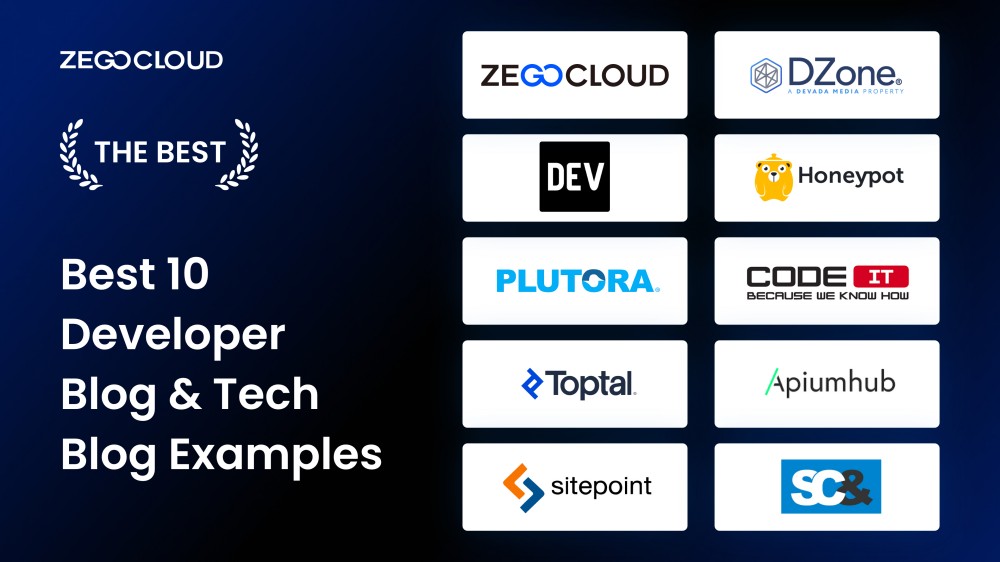The Development of the Best tech blog: A Journey Via Tech History and Future Trends
The Development of the Best tech blog: A Journey Via Tech History and Future Trends
Blog Article
Just How Blockchain Innovation Is Revolutionizing Information Safety And Security
Blockchain technology is fundamentally altering the landscape of information safety and security by introducing a decentralized structure that guarantees improved transparency and durability. Unlike traditional systems, which depend on central information repositories, blockchain distributes data throughout a network, decreasing susceptabilities and single factors of failing. Making use of sophisticated cryptographic methods guarantees that information stays tamper-proof, promoting count on among stakeholders and individuals. As sectors swiftly adapt to this technology, questions arise about its wider impact and possible challenges. What ramifications does this shift hold for future information protection approaches and regulative structures? The solutions may stun you (Best tech blog).
The Fundamentals of Blockchain
Blockchain technology, an innovative principle in electronic information administration, fundamentally changes just how info is saved and secured. At its core, a blockchain is a dispersed ledger that records deals across a network of computer systems, making certain transparency and immutability. The innovation operates a chain of blocks, each having a list of transactions. Once a block is filled up, it is time-stamped and connected to the previous block, creating a sequential chain.
Trick to recognizing blockchain is the hashing process, which secures purchase information right into a distinct alphanumeric code. This cryptographic function makes certain that any kind of change in the purchase data causes an entirely various hash, therefore securing against meddling. The consensus mechanism, an additional vital component, confirms and validates new deals via a network of nodes, thus eliminating the need for a centralized authority.
In addition, blockchain's append-only framework ensures that information, when added, can not be erased or altered. This characteristic guarantees a verifiable and irreversible record of purchases, cultivating depend on among participants. Because of this, blockchain gives a robust framework for information honesty, using markets a reputable method for monitoring and managing electronic details in a secure, clear way.
Decentralization and Safety
Decentralization, a core concept of blockchain modern technology, significantly improves data safety by dispersing control across a network as opposed to depending on a particular, centralized entity. This circulation alleviates the risk of single factors of failing, which prevail in typical centralized systems. By dispersing data throughout various nodes, blockchain makes sure that even if one node is compromised, the entire network stays safe. This redundancy not just strengthens the stability of the data yet also boosts its strength to cyberattacks and system failings.

Furthermore, decentralization equips individuals with greater control over their data. Each individual in the network has access to the entire blockchain, permitting them to verify and audit purchases separately. This openness fosters trust fund amongst customers, as they do not need to rely upon a central authority to ensure data integrity. On the whole, decentralization is instrumental in improving data protection in blockchain networks.

Cryptographic Techniques
At the heart of blockchain modern technology, cryptographic techniques play an essential function in guarding data, ensuring both discretion and integrity. These methods are foundational to the blockchain's ability to firmly record transactions in a decentralized way. Cryptography in blockchain utilizes a mix of symmetric and uneven formulas to secure data, making it easily accessible just to authorized celebrations - Best tech blog. Public and exclusive key pairs are central to this process, enabling for safe and secure authentication and identity confirmation without disclosing sensitive info.
Hash functions are one more vital part, transforming input data into a fixed-size string of characters, successfully developing a distinct digital finger print for each and every block. This makes certain that any kind of attempt to change the data will certainly lead to an entirely various hash, hence maintaining the immutability of the blockchain. Additionally, digital trademarks validate the authenticity and integrity of transactions, providing a layer of non-repudiation.
The decentralized nature of blockchain, combined with robust cryptographic strategies, gets rid of the requirement for middlemans, minimizing possible susceptabilities. As blockchain technology evolves, improvements in cryptography such as zero-knowledge proofs and homomorphic security proceed to Visit Your URL improve safety and security actions, even more fortifying data security in this advanced digital journal system.
Use Situations Throughout Industries

In the healthcare sector, blockchain makes sure the protected storage and sharing of individual documents, promoting interoperability while protecting sensitive data from unauthorized accessibility. This modern technology encourages people with control over their case history and helps with seamless sychronisation among doctor.
Supply chain management benefits dramatically from blockchain's unalterable ledger, which makes sure traceability and authenticity of products from beginning to customer. By boosting openness, blockchain assists alleviate issues such as counterfeiting and unethical sourcing.
Furthermore, blockchain's decentralized nature is improving the power market by making it possible for peer-to-peer energy trading, where consumers can deal excess renewable resource directly. This fosters an extra sustainable and efficient power community.
In the world of copyright, blockchain gives a tamper-proof system for designers to sign up and secure their works, ensuring rightful attribution and fair compensation. These varied use situations highlight blockchain's role as a critical force in redefining data security throughout markets.
Future of Information Protection
As we aim to the future of data security, blockchain modern technology is poised to play a crucial duty in safeguarding digital details. With its decentralized and immutable attributes, blockchain uses a robust framework for safeguarding delicate information versus unauthorized gain access to and cyber hazards. This modern technology guarantees that as soon as information is videotaped, it is virtually difficult to alter without detection, thus providing a substantial benefit over traditional information storage space approaches.
The assimilation of blockchain with other sophisticated innovations, such as man-made knowledge and the Net of Points (IoT), is expected to improve information defense approaches better. By leveraging wise agreements, companies can automate and enforce safety and security procedures, minimizing human error and increasing effectiveness. In addition, blockchain's capacity to give transparent and deducible purchases will bolster trust and accountability in information monitoring practices.
As regulatory landscapes develop, blockchain's compliance-friendly nature will become progressively pertinent. It can aid companies satisfy rigorous information security policies, such as the General Data Defense Guideline (GDPR) and the California Customer Personal Privacy Act (CCPA), by providing proven records of information handling tasks. Inevitably, blockchain's one-of-a-kind characteristics placement it as this hyperlink a transformative tool in the continuous quest to secure the electronic globe against ever-evolving cyber hazards.
Conclusion
Blockchain innovation represents a paradigm change in information protection by leveraging decentralization and cryptographic methods to boost openness, trust, and data integrity. Its capacity to eliminate solitary factors of failing and use agreement systems considerably reduces the danger of fraudulence and cyberattacks. This innovative structure not just empowers customers with greater control over their data however likewise straightens with governing compliance. As cyber risks advance, blockchain emerges as an essential tool for durable information protection across different markets.
Blockchain technology is fundamentally changing the landscape of information protection by introducing a decentralized framework that guarantees improved openness and resilience. Unlike traditional systems, which depend on central information databases, blockchain distributes you can check here data across a network, lessening susceptabilities and single factors of failing.Decentralization, a core concept of blockchain modern technology, significantly boosts information security by distributing control throughout a network rather than relying on a particular, central entity.At the heart of blockchain innovation, cryptographic methods play a critical function in securing information, ensuring both privacy and honesty.Blockchain modern technology represents a paradigm change in information protection by leveraging decentralization and cryptographic strategies to enhance openness, depend on, and information integrity.
Report this page